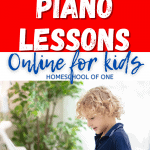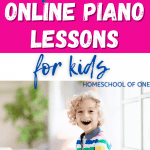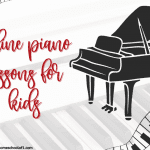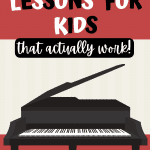Best Online Piano Lessons For Kids | Start Playing Today!
Every child has a spark of creativity, and music is one of the best ways to nurture it. Playing the piano can be a gateway to a lifelong love of music. But how do you find the best online piano lessons for kids?
Let’s dive into the world of digital music curriculum for kids and uncover the top options to kickstart your child’s musical journey.
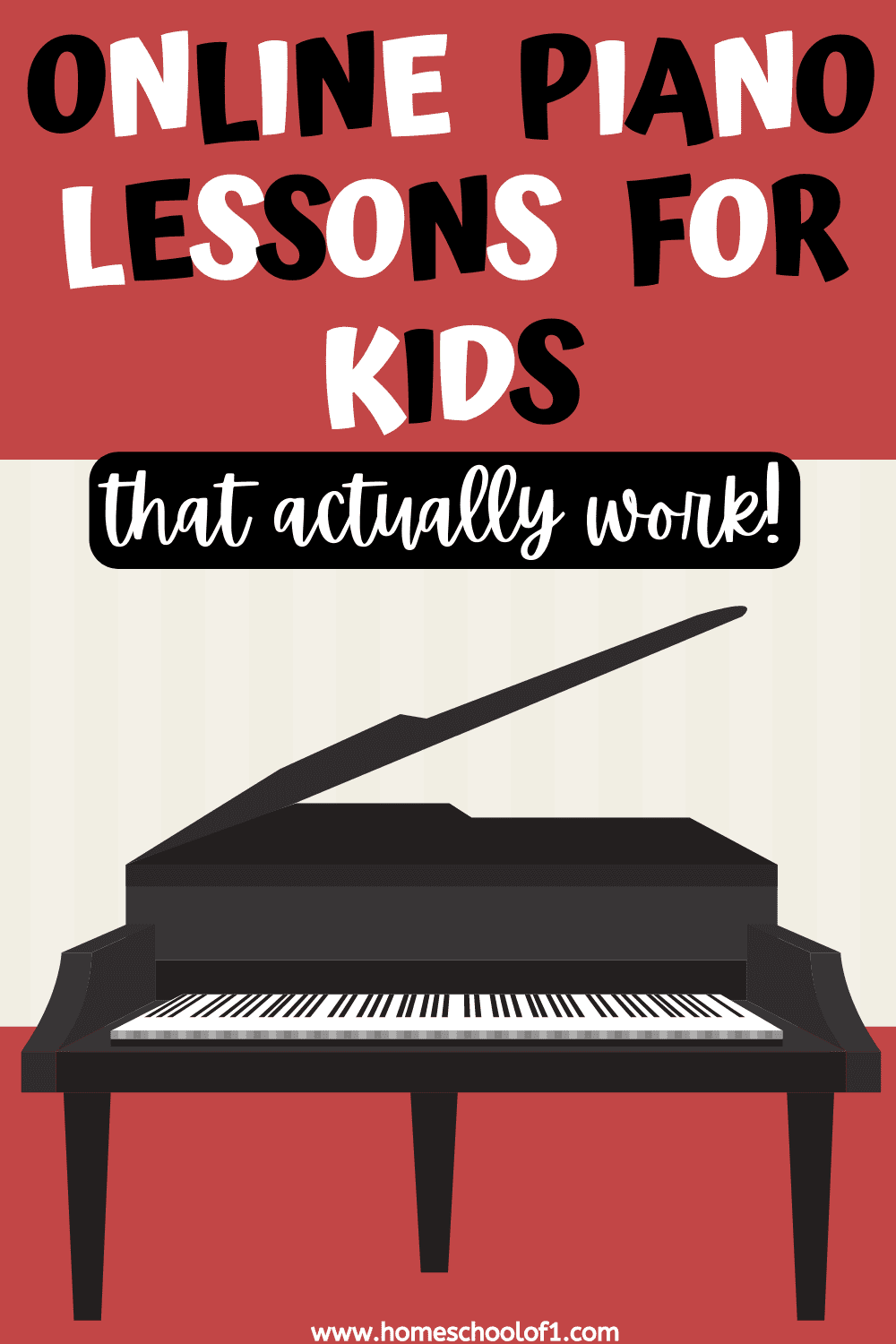
**This post may contain affiliate links. As an Amazon Associate and a participant in other affiliate programs, I earn a commission on qualifying purchases.**
Top Online Piano Lesson Platforms
- Hoffman Academy stands out for its engaging and child-friendly teaching style. Their lessons are designed to be fun and interactive, using games and activities to teach piano playing, music theory, and rhythm. The academy offers both free and premium content, making it accessible for everyone.
- Piano Marvel is designed to cater to all skill levels, from beginners to advanced players. It offers an interactive learning experience with instant feedback on performance. The platform covers everything from basic piano theory and how to read music to advanced techniques and improvisation.
- Simply Piano by JoyTunes is a popular app that turns learning to play the piano into a game. It’s perfect for younger children who enjoy interactive learning. The app listens to your child play and provides real-time feedback, making practice sessions more productive and enjoyable.
- Flowkey is another excellent choice for beginners and intermediate players. It offers a vast library of songs across various genres, allowing kids to learn piano by playing their favorite tunes. Flowkey also includes tutorials on piano chords, scales, and music notation.
- Outschool offers it all, private music lessons, beginners group piano class and private tuition. Check out our Outschool review here to see what other live online classes we take in our homeschool.
- Making Music Fun is aimed at children in grades K-6, offering a variety of engaging resources. It includes free sheet music, music theory worksheets, and interactive games to make learning fun and educational.
- Merriam Music provides a no-obligation, risk-free trial lesson, allowing you to assess if their teaching style fits your child’s needs. They offer a comprehensive curriculum that balances technical skills with creative expression.
- Playground sessions, co-created by Quincy Jones, offers a gamified learning experience that’s both fun and educational. It provides real-time feedback and features a wide array of popular songs to keep children motivated.
- Piano For All is designed to take students from beginner to advanced levels quickly. The course includes a mix of eBooks, videos, and audio lessons, covering a broad spectrum of styles and techniques.
- Musiah offers a unique, AI-driven teaching method that simulates a real-life piano teacher. It’s ideal for students who prefer a structured learning path with instant feedback and personalized guidance.
- Piano Nanny provides free, web-based piano lessons that are perfect for beginners. It offers a structured course that covers the basics of piano playing, music theory, and reading music.
- Piano Lessons 4 Children offers free online piano lessons tailored specifically for kids. The lessons are designed to be simple and fun, making it easy for young learners to grasp basic concepts.
- Zebra Keys is another free resource offering online piano lessons. It provides a variety of lessons and tutorials that are suitable for beginners, along with interactive piano exercises.
- Great Bend Center for Music provides a nurturing and innovative environment for kids to learn piano. They focus on fostering a love of music through engaging and interactive online lessons, suitable for different age groups and skill levels.
Key Features to Look for in Online Piano Lessons
When searching for online music lessons for kids, consider these important features:
- Look for platforms that offer interactive lessons with real-time feedback. This helps children correct their mistakes immediately and progress faster.
- The lessons should be fun and engaging to keep your child interested. Games, challenges, and a variety of music genres can make learning more enjoyable. For younger kids, you can play our free music memory game printable.
- A well-rounded curriculum should include lessons on piano technique, music theory, how to read sheet music, and improvisation.
- Ensure the lessons are taught or designed by qualified music teachers with experience in teaching children.
- Platforms that track progress can help you monitor your child’s improvement and keep them motivated with clear goals.
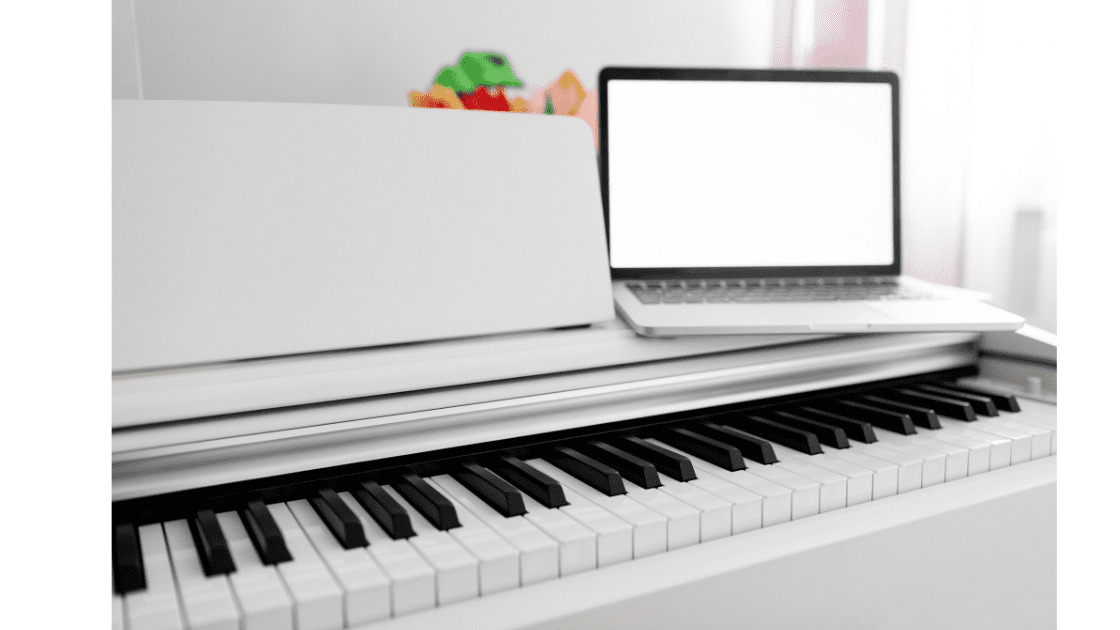
Benefits of Learning to Play the Piano
Learning to play the piano offers numerous benefits beyond just musical skills. Here are some key advantages:
- Playing the piano helps improve memory, attention, and problem-solving skills.
- Music provides a healthy outlet for expressing emotions and can boost self-esteem.
- Regular practice teaches discipline and the value of perseverance.
- Piano playing enhances hand-eye coordination and fine motor skills.
- Learning to improvise and compose music fosters creativity and innovation.
Tips for Successful Piano Learning
To make the most out of online piano lessons, consider these tips:
- Consistency is key to progress. Set a regular practice schedule that fits your child’s routine.
- Break down learning into manageable goals. Celebrate small achievements to keep your child motivated.
- Let your child explore different styles of music and experiment with improvisation.
- Ensure your child has access to a quality piano or keyboard. A digital piano with weighted keys can be a great option.
- Take an active interest in your child’s learning. Sit in on lessons, offer praise, and provide support.
Famous composers research projectFamous music composers coloring pages
Overcoming Common Challenges
Learning to play the piano can come with challenges. Here are some common issues and how to address them:
- Lack of Motivation: Keep lessons interesting by incorporating your child’s favorite songs and mixing up the routine.
- Difficulty Reading Music: Start with simple pieces and gradually increase complexity. Use flashcards and apps to reinforce note reading.
- Coordination Struggles: Practice hand coordination exercises separately before combining both hands. Slow practice can also help.
- Boredom: Introduce new songs, styles, and improvisation to keep things fresh and exciting.
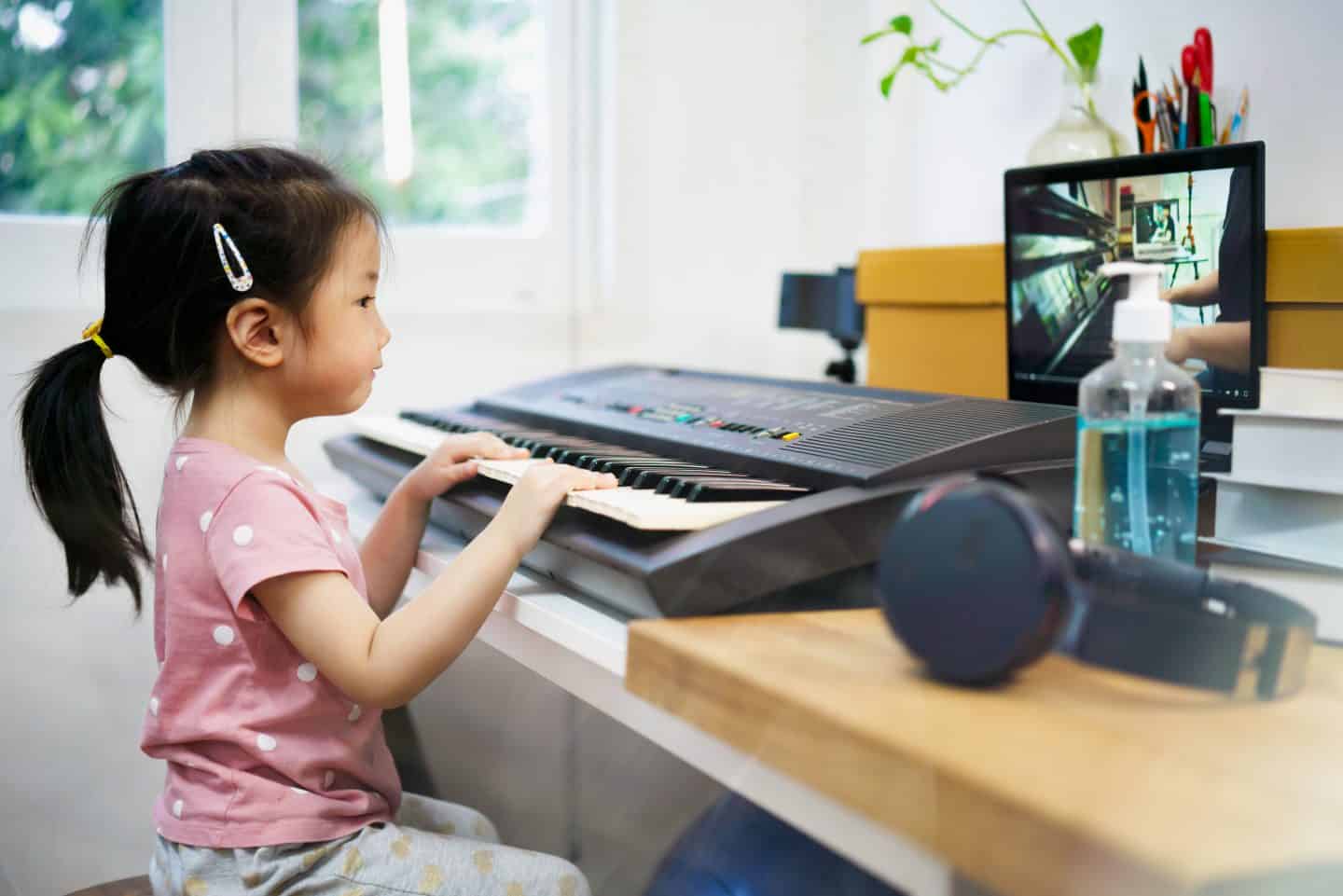
Expanding Musical Horizons
After your child has built a solid foundation in music, it’s the perfect time to dive into new musical experiences together. Delving into music theory can be an exciting journey, as understanding the structure behind the notes helps deepen their appreciation and skill.
Encourage your child to experiment with improvisation, allowing them the freedom to create their own melodies and play with different sounds—discovering their own musical voice along the way.
Exploring a variety of genres like classical, jazz, blues, or pop can broaden their horizons and introduce them to different styles and techniques.
Performance opportunities, whether virtual recitals or local events, can also help build their confidence and stage presence. Watching them shine in front of an audience is such a rewarding experience!
To keep things organized and stay on track with lessons, you can use these free printable piano practice tracking sheets, a great tool to stay motivated and celebrate their progress.
Last Updated on 11 April 2025 by Clare Brown

